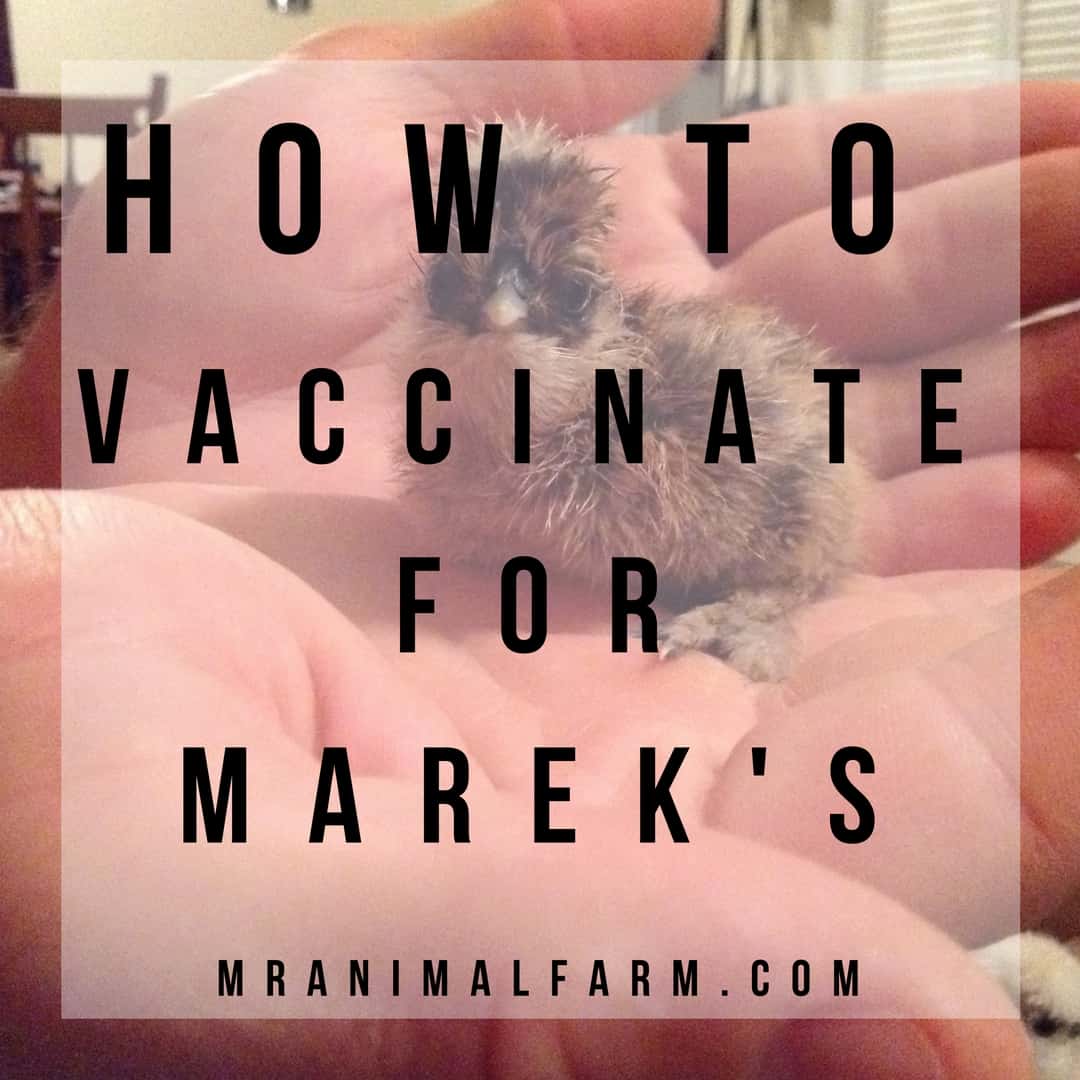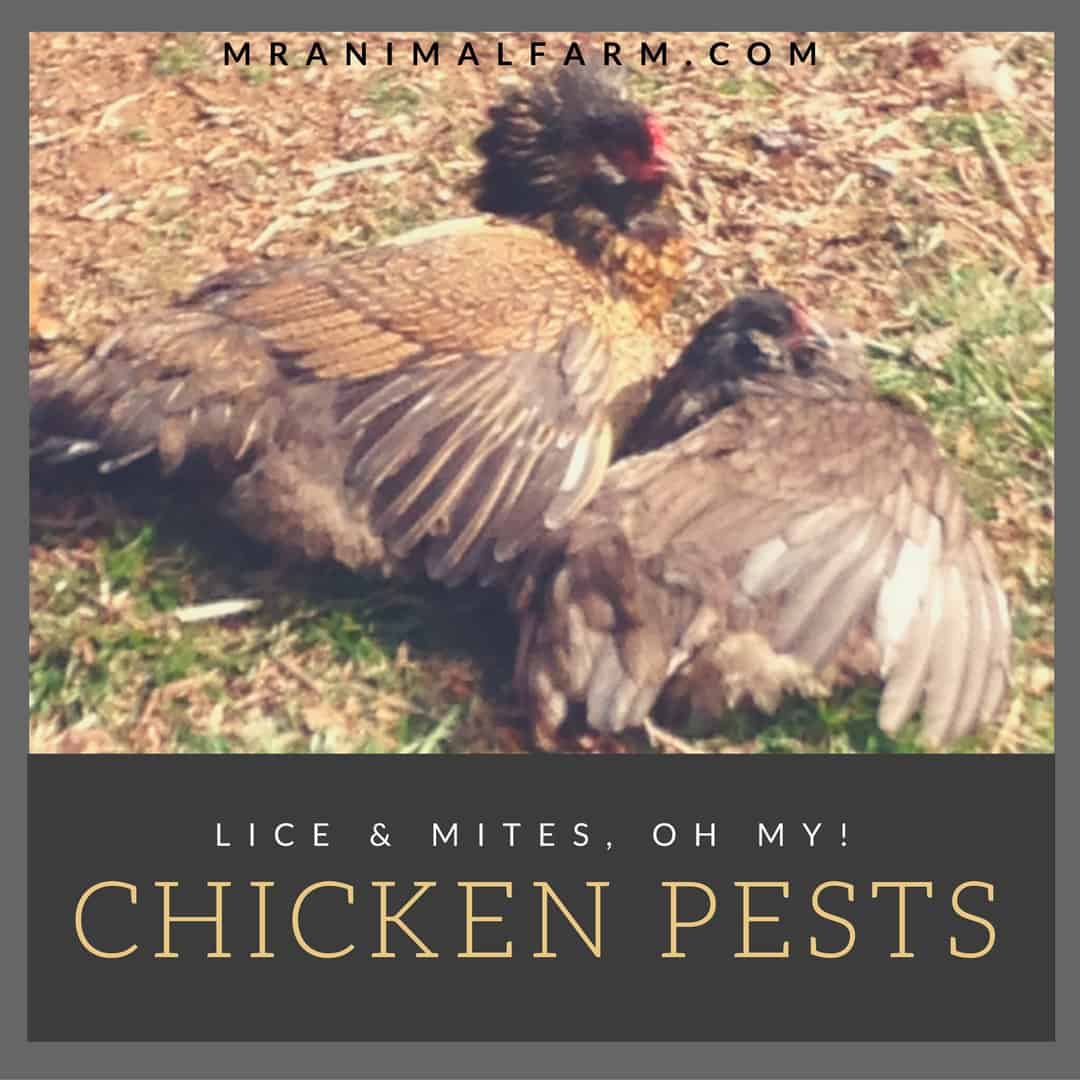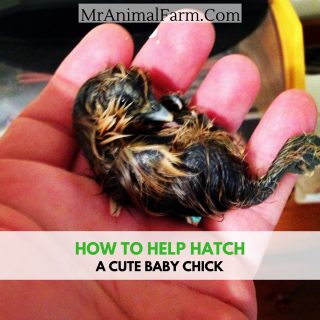Learning how to vaccinate chickens can seem daunting. However, Marek's disease can be a devastating illness that can take out an entire flock.
Additionally, Marek's is most times in the environment already as it can be spread through wind and wild birds to your property. Birds age 16 weeks and under are most susceptible to developing Marek's.
Given this, many people choose to vaccinate their chickens to protect against the disease. Needles, vaccines, syringes and squawking chicks can seem really intimidating. However, giving the vaccines really is simple.

Vaccinating Chickens
There are several different types of vaccines that you can give to chickens to try and help them ward off different chicken diseases. Some vaccines are more commonly used than others.
Additionally, if you understand how to give a chicken a vaccine, then you should also be able to give them a shot as it is the same principle. This will help in case you have to care for chickens that get sick and need some antibiotics or vitamins.
Supplies For Chick Vaccinations
Vaccine
This chicken vaccination comes as a wafer and diluent. We order from Meyer Hatchery because they offer a pack where you can split the vaccine into 4 use times.
Syringes
We order Becton Dickinson (BD) brand from Amazon and get the largest gauge (about 22 gauge) needles (the larger gauge is actually a smaller needle).
Glass Jar
We use this to mix the chicken vaccine in.
Need some help keeping your chickens health and care taken care of? Check out the Organized Chicken Keeper for an easy to follow system.
How To Vaccinate a Chick
Mix Vaccine
The vaccine will come with instructions for breaking the wafer in fourths and adding the correct amount of diluent.
Drawing the Vaccine
Each chick will get 1cc of the vaccine mix. So, you will pull that amount into the syringe.
Deliver vaccine
Marek's vaccine is given subcutaneously (this means under the skin; not in the muscle). Therefore, you will pinch the skin up on the back of the chicks neck. Give the chick a little time to calm down. Finally, insert the needle into the "tent" of skin (again, not down into the muscle).
These instructions and supplies are specify to the Marek's vaccine for chicks. However, these directions are applicable for any subcutaneous shot. You just need to substitute in that particular vaccine dosing amount.
Need to see how to vaccinate a chick? Check out our video below:
(While you watch, don't forget to subscribe!)
Other Chick Vaccinations
Aside from Marek's, there are some other dangerous, yet avoidable diseases that chickens can face. The manner in which these vaccines are mixed, processed and administered may vary. However, some of the same principles apply when giving an injection.
Avian Encephalomyelitis (AE)
AE is almost always a deadly infection. It is dangerous because it is so easily spread. It is able to be passed from hen to chick as well as from chicken to chicken within the flock. However, it usually impacts freshly hatched chicks within a week of hatching.
The symptoms make the chick appear to be disoriented; stumbling while walking. Eventually they will lose use of their legs and become paralyzed.
The vaccine is generally given at 10 to 15 weeks of age. It is also often bundled with the Fowlpox vaccine and given in unison.
Fowlpox
Fowlpox is not always a deadly disease. It is, however, uncomfortable and can appear to be pretty nasty. It presents itself through blisters and sores on your chickens skin, as well as their comb and wattles.
Mosquitos are the primary culprit for spreading this disease. The vaccine is givein in a chicks wing web at 10 to 12 weeks old.
Infectious Bursal Disease
Infectious Bursal Disease is another issue rooted in a viral infection. This disease is particularly nasty because it will weaken a chicks immune system thus making them susceptible to many other illnesses.
This disease requires a preventative vaccine given between 2 and 3 weeks of age. It is a water additive. It is better to vaccinate as opposed to fighting it once an infection occurs. Once it is in the flock it is notoriously difficult to manage and get rid of.
Newcastle Disease
Presents itself as a respiratory illness. Chickens may start sneezing and couching. You may also notice excess mucus and diarhea. In some cases chickens may become lethargic and have a noticeable decrease in egg production.
In more serious cases chickens may experience severe swelling around their eyes, their wings may hang , some birds will expereince paralysis, and even death.
Newcastle Disease is caused by a virus and is mostly spread through the waste of already infected chickens and other fowl. There is no known cure but there are preventative treatments. A vaccine is recommended for chicks between 2 and 3 weeks in age. It is also recommended to set a chicken vaccination schedule as a booster for your flock.
Prevent Chicken Diseases
This is not a comprehensive chicken disease list. Chickens are often prone to respiratory illnesses. You can vaccinate for many dangerous diseases, but not for everything.
The best way to keep your chickens happy and healthy is to make sure they have a healthy diet and access to clean drinking water.
Additional steps you can take include good biosecurity. That means things like quarantining new chickens before introducing them to the flock, cutting down on chicken lice and chicken mites, and making sure their coop is kept clean and well ventilated.
If you need more help with taking care of your chickens, check out The Organized Chicken Keeper for a complete system for managing their health through keeping their supplies stocked and coop clean.




